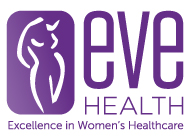Prioritise Breastfeeding: Create sustainable support systems
Breastfeeding is convenient, readily available, and helps to create loving bonds between a mother and her baby. These are some reasons why women breastfeed a baby from birth. As part of World Breastfeeding Week – which runs from August 1-7 – we will highlight why breastfeeding is beneficial for mother and baby.
About World Breastfeeding Week
World Breastfeeding Week aims to highlight the benefits breastfeeding can bring to both the health and welfare of babies. It also aims to promote a wider push for maternal health, focusing on good nutrition, poverty reduction and food security.
- The Australian Breastfeeding Association is a good resource regarding the awareness campaign. if you would like to know more or see how you can get involved, please visit World Breastfeeding Week 2025 | Australian Breastfeeding Association
Breastfeeding benefits
For the first six months of life, breastfeeding offers baby all its nutritional needs and provides resistance to infection and disease. A diverse gut microbiome has been extensively researched and is now considered essential for good mental and physical health. Good bacteria for the gut is passed from mother to baby via the mother’s skin and breastmilk.
Colostrum – baby’s very first milk from the mother’s breast – has extra protection. Breastfeeding provides benefits to baby such as guarding against a range of health conditions including asthma, allergies, childhood obesity, and sudden unexplained death in infants.
- Raising Children lists more about the benefits here: https://raisingchildren.net.au/newborns/breastfeeding-bottle-feeding/about-breastfeeding/breastmilk-breastfeeding-benefits
For the mother, breastfeeding also has benefits including bonding with baby, returning the uterus to its pre-pregnancy size faster, and reducing the risk of breast cancer, ovarian cancer, and osteoporosis.
Is breastfeeding recommended?
The World Health Organisation recommends exclusive breastfeeding for the first six months of life, with food introduced as well as breastmilk thereafter.
How many women breastfeed?
About 96% of Australian mothers initiate breastfeeding, however less than one quarter of babies are still being exclusively breastfed to five months. If a woman is experiencing difficulties with breastfeeding it is important to seek support to reach six months or more.
Where to get support
While breastfeeding has many benefits, it’s a learning curve and can take time and practice. With the right support, problems can be overcome. Talking to your midwife, family health nurse, or a lactation consultant are good first steps or you can even get help from a volunteer counsellor at the Australian Breastfeeding Association (ABA) breastfeeding helpline on 1800 686 268.
At Eve Health we have a team of experienced midwives who can provide a holistic, and personalised approach to maternity care and postnatal care, including help with breastfeeding. For more information about Eve Health, visit us at www.evehealth.com.au or phone 07 3332 1999. We have also established an Eve Health Parents Group which provide parents with extra support.
We also have our dedicated Lactation Consultant, Candice Cherry. Candice provides both one on one lactation consults as well hosting as a monthly lactation education at our Eve Health Clinic.

Tips for breastfeeding
There are many tips and resources available for helping you to breastfeed. Some advice includes:
- Staying together after birth to promote a strong hormonal response.
- Learning about position and attachment (how baby latches to breast).
- Being patient as it takes time for both mum and baby to learn breastfeeding.
- Feeding on baby’s demand to stimulate milk production.
- Avoiding dummies and teats so they get used to the nipple.
Sources and for further reading:
Comments are closed.
